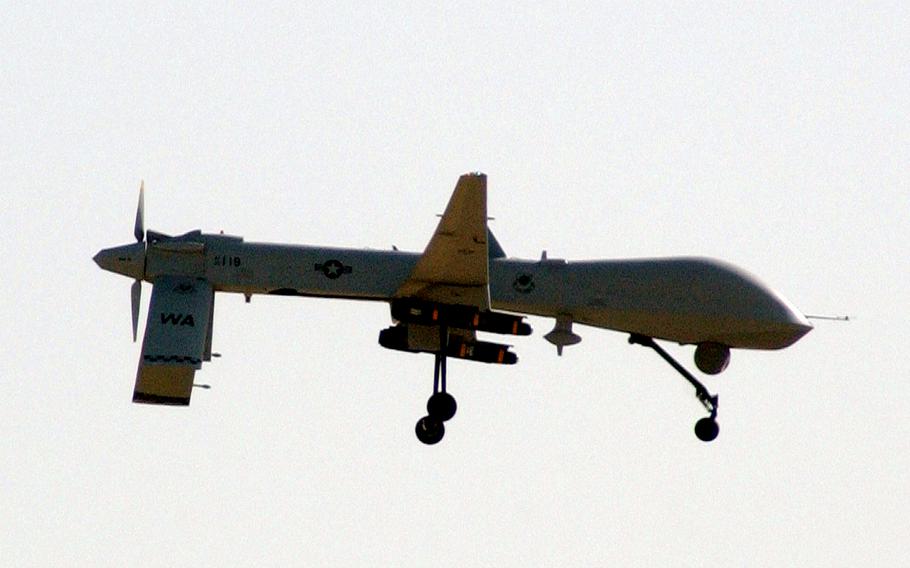Europe
Legal saga over how Ramstein figured into deadly 2012 Yemen drone strike reaches German high court
Stars and Stripes December 17, 2024

An MQ-1 Predator drone prepares to land following a combat mission. The German Federal Constitutional Court began hearing oral arguments Dec. 17, 2024, in a case brought by two Yemeni men who blame Germany and the U.S.-operated Ramstein Air Base for a fatal 2012 drone strike in Yemen. (U.S. Air Force)
KAISERSLAUTERN, Germany — The role of the German government and Ramstein Air Base in coordinated U.S. drone strikes is under scrutiny by the country’s highest court, which took up the case of two men whose relatives were killed in a 2012 attack in Yemen.
The Federal Constitutional Court in Karlsruhe began hearing oral arguments Tuesday about whether Germany has a duty under international law to protect third-country nationals abroad from foreign military forces it hosts.
The plaintiffs are Yemini citizens Ahmed and Khalid bin Ali Jaber. Two of their relatives were killed when a U.S. military drone strike hit the village of Khashamir, in eastern Yemen, on Aug. 29, 2012.
The victims, Salim bin Ali Jaber and Walid Abdullah bin Ali Jaber, were there for a wedding. The killings drew outrage because Salim bin Ali Jaber was an outspoken opponent of al-Qaida, which was said to be the target of the strike, German news outlet Deutsche Welle reported when the case was first filed.
At issue is a relay station at Ramstein that allows coordination of weapons-capable drone strikes from other locations. Air Force officials at Ramstein have said in the past that no base facilities are used to directly fly or control any remotely piloted aircraft.
But according to a high court statement last month that previewed the case, in April 2010 and November 2011, U.S. forces told the German defense ministry of a plan to construct a satellite relay station on Ramstein “to control weapon-capable drones abroad.” The ministry did not object to the plan, the statement said.
There was no immediate response Tuesday from U.S. Air Forces in Europe-Air Forces Africa, which is headquartered at Ramstein, regarding a request for comment about the case.
The Berlin-based European Center for Constitutional and Human Rights, which is supporting the plaintiffs, said in a statement last month that Ramstein Air Base played an important role in the attack.
And the German government’s response has “been to deny any knowledge of or responsibility for the death of these and other civilians from U.S. drone attacks,” the statement said.
The original case was filed in 2014 and heard by a court in Cologne. In 2019, an administrative court decided in favor of the plaintiffs.
But that ruling was overturned by an appellate court, which said German diplomatic outreach to the U.S. over the strikes was sufficient, regardless of international law.
In the complaint filed with the Cologne court, Faisal bin Ali Jaber alleged that without Germany, the “U.S. would not have been able to fly drones over Yemen” and that his relatives would not have been killed, DW reported at the time.
“My family is not an enemy of the USA,” the Deutsche Welle story quoted him as saying.